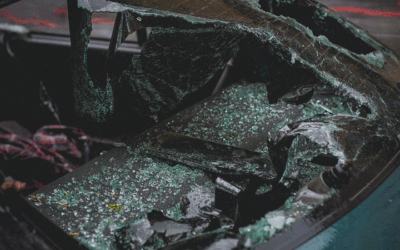Texarkana, TX (March 29, 2025) – A serious crash along westbound Interstate 30 at mile marker 223 in Texarkana led to multiple injuries on the afternoon of March 28. The accident, reported at approximately 2:40 p.m., involved a significant impact that resulted in airbag deployment and injuries to at least one child.
First responders were dispatched swiftly to the scene, where they found multiple people hurt. Among them was an 8-year-old child who was reportedly unable to move his arm after the crash. Emergency personnel provided on-site assistance before transporting the child and other victims to nearby hospitals for further care. The extent of the child’s injuries has not yet been released, but the situation has sparked concern from witnesses at the scene.
Traffic slowed significantly along I-30 westbound as emergency crews worked to clear debris and manage the aftermath. Police are continuing to investigate what led to the crash. Details surrounding the number of vehicles involved or contributing factors remain under review.
We wish everyone hurt in this wreck a rapid recoveryl
Car Accidents in Texas
 Texas highways see thousands of injury-causing crashes each year. According to the Texas Department of Transportation, one person was injured every two minutes and 9 seconds in a traffic collision statewide last year. These numbers reveal how quickly lives can change due to a split-second incident, especially on fast-moving interstates like I-30.
Texas highways see thousands of injury-causing crashes each year. According to the Texas Department of Transportation, one person was injured every two minutes and 9 seconds in a traffic collision statewide last year. These numbers reveal how quickly lives can change due to a split-second incident, especially on fast-moving interstates like I-30.
In the wake of serious crashes, particularly those involving children, it’s helpful to understand how vehicle accidents can impact young passengers:
- Bone Fractures and Growth Plate Injuries: Children’s bones are still developing, and fractures can affect growth if not treated properly. Arm and shoulder injuries are common when seatbelts tighten or airbags deploy. Pediatric specialists are often needed to manage recovery.
- Internal Trauma: Even when there are no visible wounds, internal bleeding or organ damage may occur. Children may not always express pain clearly, making medical evaluation crucial after a crash.
- Psychological Effects: Young victims can experience fear, anxiety, and post-traumatic stress following a violent wreck. Behavioral changes, nightmares, or fear of riding in vehicles are not uncommon after serious accidents.
- Concussions and Head Injuries: Children are particularly susceptible to head trauma, even in low-speed collisions. Symptoms like confusion, dizziness, or loss of coordination can be signs of a concussion.
- Seatbelt-Related Injuries: While seatbelts save lives, they can also cause bruising or abdominal injury in small children. Special booster seats are designed to prevent improper seatbelt placement, which can reduce these risks.
If your child was hurt in a crash like this one, speaking with a car accident attorney should be a top priority. Medical bills, long-term therapy, and emotional trauma can weigh heavily on families, and an attorney can help pursue the compensation needed to support recovery. The sooner legal help is secured, the stronger your case may be—especially when evidence must be preserved and insurance companies begin their own investigations.
At The McGuire Firm, we understand how hard it is to see your child hurt in an accident. We’ve worked with families throughout East Texas, helping them get answers, support, and compensation after traumatic events. Our Texarkana car accident attorneys know how to handle sensitive cases and work to ease the burden families face during difficult times. If we don’t win your case, you won’t owe us a dime. Let us take the legal pressure off your shoulders so you can focus on what matters most—your child’s recovery.
If you need guidance after a crash, our team is here for you. At The McGuire Firm, we offer free consultations and one-on-one support to help families understand their rights and take steps toward justice. We’ve handled thousands of cases and recovered millions for Texans in need. Call our car accident attorneys today at (903) 630-7154. You won’t pay unless we win, and we’ll fight to make sure you and your family have what you need to heal. Your case matters—and we’re ready to help you move forward.



